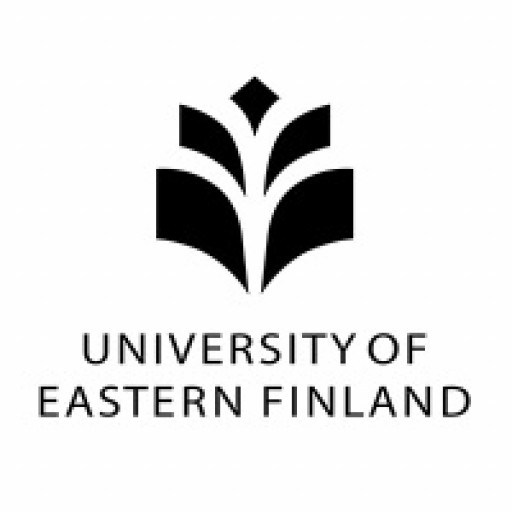Photos of university / #unibirmingham
The Education with Psychology program at the University of Birmingham offers students an exceptional opportunity to explore the interconnected fields of education and psychology, preparing them for a diverse range of careers in educational settings, mental health, research, and policy development. This integrated course combines foundational psychological theories with practical educational skills, equipping graduates with a comprehensive understanding of how individuals learn, develop, and behave in various educational contexts. Throughout the program, students engage with core topics such as developmental psychology, cognitive psychology, educational psychology, and assessment methods, alongside modules focused on teaching strategies, classroom management, inclusive education, and educational policy.
The curriculum is designed to foster both theoretical knowledge and practical skills. Students participate in lectures, seminars, and workshops led by experienced academic staff and practitioners, ensuring they are well-versed in current research and best practices. Additionally, the program emphasizes the development of critical thinking, research skills, and reflective practice, enabling students to evaluate existing literature, design their own research projects, and implement evidence-based interventions. Extensive placement opportunities are integrated into the course, allowing students to gain valuable real-world experience in schools and community settings, applying psychological theories to enhance educational outcomes and support diverse learners.
The program also benefits from the university’s emphasis on interdisciplinary learning and collaboration, encouraging students to work across subject areas and develop a nuanced understanding of the social, emotional, and cognitive factors influencing learning and well-being. Graduates will be well-positioned to pursue careers in educational psychology, teaching, educational consultancy, mental health support, research, and teacher training. They can also continue their academic journey through postgraduate studies in education, psychology, or related disciplines. With its comprehensive curriculum and practical focus, the Education with Psychology program at the University of Birmingham provides a solid foundation for those passionate about making a positive impact within educational and psychological domains.
The MSc in Education at the University of Birmingham offers a comprehensive and flexible program designed to enhance your understanding of educational theories, policies, and practices in a global context. This program provides students with the opportunity to explore a broad range of topics related to education, including curriculum development, assessment strategies, inclusive education, educational leadership, and innovation in teaching. Students will engage in critical analysis of current educational challenges and develop practical skills that are applicable across diverse educational settings. The curriculum combines core modules with optional courses, allowing students to tailor their learning experience according to their interests and career aspirations. Throughout the course, students will participate in interactive seminars, workshops, and collaborative projects that promote active learning and professional development. The program also emphasizes research skills, enabling students to undertake independent studies and contribute to evidence-based educational practices. With opportunities for work placements, field visits, and partnerships with educational institutions, students gain valuable real-world experience. The MSc is suitable for recent graduates seeking to advance their careers in education, experienced educators aiming for leadership roles, or professionals from related sectors looking to deepen their understanding of educational issues. The University of Birmingham's strong academic reputation, experienced faculty, and vibrant campus community create an ideal environment for scholarly growth and networking. Graduates of the program are well-equipped to pursue careers in school administration, policy development, educational consultancy, or further research at doctoral levels. Upon completion, students will have developed critical thinking, research, and practical skills necessary for making a positive impact in educational settings worldwide.
The University of Birmingham offers a comprehensive Bachelor of Science (BSc) in International Business and Management. The program is designed to provide students with a solid foundation in core business principles, combined with an understanding of international markets and management strategies. To successfully complete this degree, students are generally required to earn a total of 360 UK credits, typically accumulated over three years of full-time study. The curriculum includes a mix of compulsory and optional modules, covering areas such as finance, marketing, human resource management, operations management, and strategic management. Students also develop key skills in critical thinking, data analysis, communication, and leadership through practical projects and group work.
The program encourages engagement with real-world business issues through case studies, internships, and industry placements where available. Assessment methods are varied, including written exams, coursework assignments, presentations, and group projects, ensuring a well-rounded evaluation of students’ knowledge and skills. Entry requirements usually include A-levels or equivalent qualifications, with subjects such as Economics, Mathematics, or Business Studies favored. International applicants must demonstrate proficiency in English through recognized tests like IELTS or TOEFL, with typical IELTS requirements being a score of 6.0 to 6.5 overall. Students are also advised to possess strong analytical and communication skills, as well as an interest in global economic affairs and cross-cultural understanding.
The program emphasizes employability, with opportunities for networking, career workshops, and guest lectures from industry professionals integrated into the curriculum. Upon graduation, students receive a globally recognized degree, which opens pathways to careers in international business, consulting, finance, marketing, and management roles across diverse sectors. The University of Birmingham provides extensive support services including academic advising, placement assistance, and access to its vast alumni network, all aimed at enhancing student success and career prospects. This well-rounded academic journey aims to equip graduates with both the theoretical knowledge and practical skills needed to thrive in a competitive global marketplace.
Funding for the University of Birmingham's degree programmes generally comprises a combination of government support, loans, scholarships, bursaries, and university-specific financial aid options. The UK government provides student loans for eligible undergraduate and some postgraduate courses through the Student Loans Company, covering tuition fees and living costs, which students can repay after graduation based on their income levels. For domestic students, tuition fee loans are typically available up to a set maximum each year, and the loan repayment scheme is income-contingent, offering manageable repayment terms.
International students are responsible for their own financing, which includes paying tuition fees directly to the university. However, they may also be eligible for various scholarships or financial aid programs offered by the university, government, or external organizations. The University of Birmingham offers a range of scholarships for international students based on academic merit, country of origin, or specific fields of study, which can significantly offset tuition fees and living expenses. Some of these scholarships are competitive and require an application process, often coupled with academic excellence or particular criteria such as leadership potential or financial need.
In addition to scholarships, the university provides bursaries and hardship funds to support students facing financial difficulties, ensuring access and retention for students from diverse economic backgrounds. Postgraduate students can also explore funding options such as research councils, industry-sponsored scholarships, and employer sponsorships, which offer financial support and sometimes stipends to cover living costs during research or taught postgraduate study.
Private financial planning and budgeting are encouraged by the university, alongside advice and guidance on student loans, campus employment opportunities, and external funding sources. Many students also opt to take part-time work during their studies to supplement their income, with the university's career services providing resources to assist in finding suitable part-time roles both on and off-campus. Additionally, international students are advised to explore restrictive visa-related financial regulations and plan accordingly, considering costs such as tuition, accommodation, travel, and insurance.
In conclusion, the financial support framework at the University of Birmingham is designed to facilitate student access to higher education through a combination of loans, scholarships, bursaries, and external funding options, with tailored advice available to help students make informed decisions and manage their finances effectively throughout their studies.
The MSc in Business Analytics at the University of Birmingham is a comprehensive postgraduate program designed to equip students with advanced skills in data analysis, statistical modeling, and business decision-making processes. The program aims to prepare graduates to meet the growing demand for data-driven decision-making in various industries including finance, marketing, supply chain management, and consulting. Throughout the course, students develop a strong foundation in core analytical techniques such as predictive modeling, machine learning, and big data analytics, complemented by practical experience using industry-standard software and tools.
The curriculum is structured to balance theoretical knowledge with practical application, often involving real-world projects, case studies, and internships. This approach ensures that students not only understand the underlying principles of business analytics but can also apply these concepts effectively in professional environments. Modules typically cover areas such as data management, programming (often in Python and R), data visualization, and ethical considerations in data usage, preparing students to handle complex data challenges responsibly.
The program is usually offered over a full year for full-time students or longer for part-time students, providing flexibility for working professionals. Entry requirements typically include a good honours degree in a relevant subject such as business, economics, mathematics, computer science, or engineering. It is also common for the program to value prior experience in quantitative methods and data analysis, although this is not always mandatory.
Graduates of the MSc Business Analytics program at Birmingham are well-positioned to work in roles like data analyst, business intelligence specialist, data scientist, or strategic analyst. The university leverages its strong links with industry partners and alumni network to facilitate placements and internship opportunities, enhancing employability upon graduation. The program’s location in Birmingham, a vibrant economic hub, offers students access to a wide range of industry contacts and potential employers.
Reflecting the university’s reputation for research and innovation, the program integrates the latest developments in analytics and artificial intelligence, ensuring students are at the forefront of technological advancements. Additionally, the university provides various support services, including career counseling, to help students plan their professional trajectories effectively. Overall, the MSc in Business Analytics at Birmingham is designed to develop highly skilled graduates capable of leveraging data to solve complex business problems and drive organizational success in a data-centric world.









